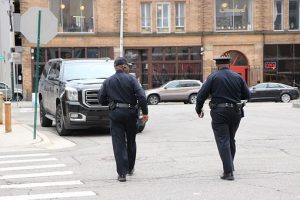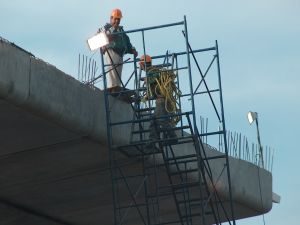Except in the case of spouses, civil union partners and domestic partners, when a New Jersey resident dies owning a jointly held asset, whether it is real estate, stocks, bank accounts, etc., the entire value of the asset will be taxed as if it belonged to the decedent. If the surviving joint tenant can prove that a portion of it actually belongs to the surviving joint tenant and not the decedent, the New Jersey Division of Taxation may grant an exemption from taxation for that portion of the value of the asset. This makes selecting an estate administration and tax planning attorney extremely important.
the value of the asset. This makes selecting an estate administration and tax planning attorney extremely important.
In order to prove that a portion of the asset actually belonged to the surviving joint tenant, you must be able to show the surviving joint tenant’s financial contribution to the asset or that the surviving joint tenant inherited their portion of the asset from another. Depending upon the relationship between the decedent and the surviving joint tenant, the asset will be subject to inheritance tax at a rate between 11 percent and 16 percent. Class A Beneficiaries (which include spouses, civil union partners, registered domestic partners, parents, grandparents, and children) do not pay any tax on inheritances. Class C Beneficiaries (which include siblings of the decedent and spouses/civil union partners of a child of the decedent) receive $25,000 free from inheritance tax, are taxed at a rate of 11 percent on the next $1,075,000 of inherited assets and the rate increases as the amount inherited increases – up to 16 percent. While bequests to charities are not taxed, inheritances received by all other non-charitable beneficiaries not included in Class A or C are Class D beneficiaries and their inheritances are taxed at a rate of 16 percent for the first $700,000 and 17 percent for the remaining balance of the inheritance.
Many people list another person as a joint owner on an account or an asset because they believe it simplifies the estate administration and probate of the estate. But, it actually can result in a significant tax burden which might not have been due or would have been significantly lower if assets were not jointly held. Moreover, in New Jersey probate and estate administration are not difficult or expensive so it is not usually necessary to attempt to avoid it.

 New Jersey Lawyers Blog
New Jersey Lawyers Blog


 dismiss her complaint and enforce an arbitration agreement which required the parties to
dismiss her complaint and enforce an arbitration agreement which required the parties to  litigation process, but still provide an enforceable dispute resolution process.
litigation process, but still provide an enforceable dispute resolution process. the value of the asset. This makes selecting an estate administration and
the value of the asset. This makes selecting an estate administration and  important New Jersey employment law decision, because to meet the constitutional requirements of due process and fundamental fairness, the New Jersey Civil Service
important New Jersey employment law decision, because to meet the constitutional requirements of due process and fundamental fairness, the New Jersey Civil Service  the Superior Court of New Jersey in the case of
the Superior Court of New Jersey in the case of 
